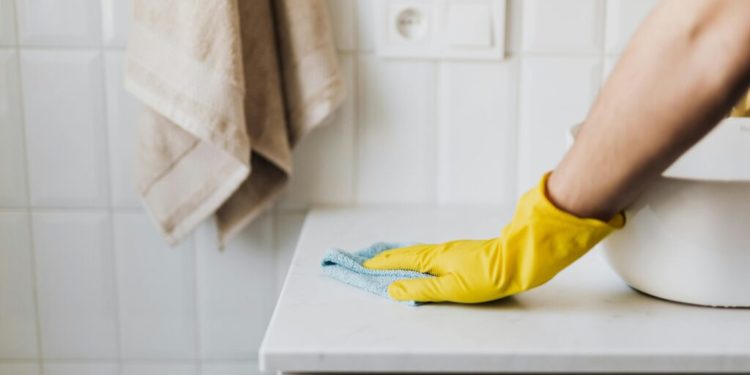Cleaning often feels like a task that never ends, yet the right approach can make the difference between exhaustion and satisfaction. The best tip to clean your house without getting tired is to hire a cleaning agency, since professionals know exactly how to get the job done quickly and thoroughly. But when hiring help is not an option, there are still plenty of strategies to make the process lighter and even enjoyable. By organizing the work, breaking it down into manageable steps, and creating a routine that fits into your lifestyle, housework can shift from being a dreaded chore to a surprisingly rewarding part of the week. That is 5 Efficient ways to clean YOUR. home! can truly make all the difference, helping you feel in control while keeping your space welcoming and fresh.
Make a Cleaning Schedule That Fits Your Lifestyle
A spotless home starts with consistency, not random bursts of effort. Without a plan, tasks pile up and quickly become overwhelming. Creating a schedule ensures that cleaning feels manageable rather than exhausting. Start by mapping out daily essentials like dishes, countertops, and quick sweeps of high-traffic areas. Then, layer in weekly tasks such as vacuuming, dusting, and bathroom cleaning. Larger monthly projects, like deep-cleaning the fridge or tackling baseboards, can be rotated into the mix.
Think of it as spreading the workload evenly across your week. Just 15–20 minutes each day prevents clutter from spiraling out of control. The beauty of a schedule is flexibility: it can be adjusted to match your pace, whether you live alone in a small apartment or manage a bustling household. Once it becomes part of your routine, housework feels less like a mountain and more like a series of small hills.
Declutter Before You Start
Nothing slows down cleaning faster than having to navigate through piles of clutter. Before grabbing a vacuum or mop, take a few minutes to clear surfaces, put items back where they belong, and get rid of anything unnecessary. A tidy environment creates the space to clean more effectively and cuts the time needed in half.
Decluttering also has a surprising side effect: it changes the way a space feels. Walking into a room that is free of piles instantly creates a sense of calm. A simple basket or storage bin can become a catch-all for items that do not have a permanent home yet. Over time, this habit keeps the mess under control and makes cleaning less of a battle. It is amazing how much easier it is to dust, wipe, or vacuum when nothing is standing in the way.
Clean Room by Room, Not Task by Task
Many people make the mistake of trying to dust the entire house at once, then vacuum everything, then move on to another task. While this might sound efficient, it often leads to fatigue and frustration because the progress is not immediately visible. A more satisfying method is cleaning one room at a time.
This approach allows you to see results right away. Completing an entire space, whether it is the kitchen or the bathroom, creates a sense of accomplishment that fuels motivation. It also means you can stop at any point and still enjoy the reward of a completely finished area. Even on the busiest days, tackling one room thoroughly is better than spreading energy thin across the whole home without fully finishing anything.
Turn Cleaning Into a Mini Workout
Housework does not have to feel like drudgery. With the right mindset, it can double as a light workout. Crank up some music, set a timer for 20 minutes, and move with purpose. Sweeping, scrubbing, and bending to reach corners all burn calories and get the blood flowing.
The key is to keep energy high by making the process active and even fun. Dance around while vacuuming, challenge yourself to finish before the song ends, or treat it like an interval workout where bursts of effort are followed by short breaks. Not only will the house sparkle, but you will finish feeling recharged rather than drained.
Invest in Tools That Make Cleaning Easier
Having the right tools can turn cleaning from a dreaded chore into a straightforward process. A good vacuum that glides easily over carpets and hardwoods saves both time and frustration. Microfiber cloths pick up dust more effectively than paper towels and are reusable, cutting down on waste. Extendable dusters reach ceiling fans and high shelves without the need for ladders.
Sometimes, it is the smallest tools that make the biggest difference. A squeegee for mirrors and shower doors prevents streaks in seconds, while a steam mop can sanitize floors without harsh chemicals. Investing in a few high-quality items ensures efficiency, protects surfaces, and helps you maintain your home with less effort. Over time, these upgrades save hours of work and create results that are noticeable right away.
Break Down Big Jobs Into Small Steps
Deep cleaning projects can feel overwhelming, which is why breaking them into smaller chunks is so effective. Instead of dedicating an entire Saturday to tackling the kitchen, divide it into parts: one day for cabinets, another for appliances, another for the pantry.
This method prevents burnout and makes even the toughest jobs manageable. It also ensures that nothing is rushed. When attention is given to one area at a time, the results are more thorough and satisfying. The key is progress, not perfection. Even small wins like cleaning out a single drawer build momentum toward larger goals.
Don’t Forget the Hidden Spots
Some of the dirtiest areas in a home are the ones rarely noticed. Light switches, doorknobs, remote controls, and appliance handles collect more germs than most realize. Regularly wiping them down with a disinfectant cloth makes a huge difference in maintaining a truly clean environment.
Hidden areas also include the space under furniture, behind appliances, and along baseboards. Dust and debris settle there quietly, affecting both air quality and overall cleanliness. Adding these spots to a monthly checklist ensures that every corner gets attention, leaving your home fresher and healthier.
Create a Reward System
Motivation can be tricky when it comes to housework, which is why rewarding progress works so well. After completing a major task, treat yourself to something small but enjoyable, like a favorite snack, a relaxing bath, or a short break with a good book. This transforms cleaning from something that drains energy into an activity connected with positive outcomes.
Over time, the brain associates tidying up with satisfaction rather than fatigue. It becomes less about forcing yourself to clean and more about enjoying the feeling of finishing. Even something as simple as lighting a candle after cleaning the living room can become part of a rewarding ritual that makes the process more enjoyable.
Why Consistency Wins Every Time
The truth is, keeping a home spotless is less about marathon cleaning sessions and more about consistent effort. Small, daily habits add up to big results. Wiping counters after cooking, putting things away immediately, and doing quick sweeps of high-traffic areas prevent messes from snowballing.
Consistency means the house never reaches a point of chaos. Instead of dreading an all-day cleaning spree, the work blends naturally into daily life. This approach not only saves energy but also creates a space that always feels inviting. Over time, these habits become second nature, making housework feel less like a chore and more like a rhythm of daily living.
Final Thoughts
A spotless home is not about perfection, it is about creating an environment that feels comfortable, welcoming, and manageable. The best tip to clean without feeling drained is always to lean on professional cleaning services when possible, but when that is not an option, the right strategies can still make a big difference. With a plan, the right tools, and a few smart habits, cleaning becomes less overwhelming and even enjoyable.
The goal is not just to finish chores, but to create a home that feels like a sanctuary. By building consistency, breaking down big jobs, and finding ways to keep the process light, housework transforms into something more meaningful. It becomes part of caring for yourself and the people you share the space with, leaving behind not just a clean house, but a calmer, happier atmosphere.









































































